





Each year we recruit around 11,000 teachers and lecturers to mark National Qualifications exams.








You could be one of them if you have two years’ current teaching experience at National 5, Higher or Advanced Higher level.
Play your part in supporting Scotland’s learners in 2024.
Visit sqa.org.uk/marker to find out more and submit your application.

PUBLISHER

Denise Connelly denise@dcpublishing.co.uk
EDITOR
Emma Storr emma.storr@dcpublishing.co.uk

EDITORIAL CONTRIBUTORS
Kate Stevenson
DESIGN AND PRODUCTION
Lucy Baillie lucy.baillie@dcpublishing.co.uk
SALES
Marian Mathieson marian.mathieson@dcpublishing.co.uk
As we head towards the end of 2023, the time is approaching for your pupils to decide on their next steps, whether it involves choosing their subjects or what they will do after school. Your support is key during this stressful time. Inside this issue, we’re helping you get prepared to guide pupils through applications and social issues, whilst embracing new ways to engage them in the classroom.
The support you give pupils can have a dramatic impact both in and out of the classroom, from helping with issues like food inequality and tackling the vaping problem in schools, to teaching them how to manage money and inspiring them with technology.
To be the best educator you can be, you also have to support yourself. This issue, we’re helping you care for your mental wellbeing, expand your own learning with professional development, and discover new passions through volunteering. All of this and more inside.
6 EMBRACING AI IN THE CLASSROOM
How can you utilise artificial intelligence for good?
19 TEACHERS IN TECH
Why teachers should be involved in the technology ecosystem.
24 FIGHTING SECTOR ISSUES
What has to change to improve job security?
27 ACTION AGAINST VAPING
DC Publishing Ltd, 198 Bath Street, Glasgow, G2 4HG Tel: 0844 249 9007
©DC Publishing Ltd 2023. All rights reserved. No part of this publication may be reproduced or used in any way without prior wri en permission from the publisher. The views expressed in this magazine are not necessarily those of DC Publishing Ltd. The publisher takes no responsibility for claims made by advertisers within the publication. Every effort has been made to ensure that information is accurate; while dates and prices are correct at time of going to print, DC Publishing Ltd takes no responsibility for omissions and errors.
www.teachersresource.co.uk
ResourceMagScot
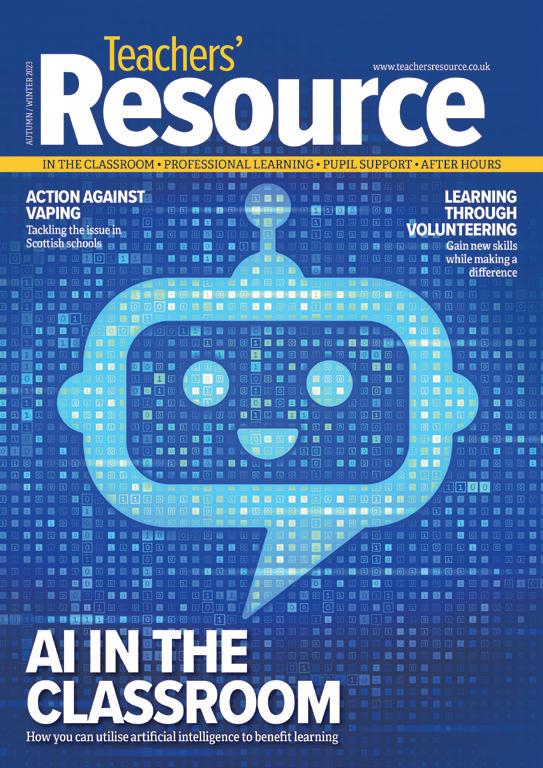

Calls are growing to ban the practice in Scottish schools.
4 DATES FOR YOUR DIARY
Stay on track with our helpful calendar.
10 CLOSING THE ATTAINMENT GAP
How schools play a pivotal role in providing support.
13 HELPING THE UCAS PROCESS
Helping pupils through their higher education application.
14 AIDING COLLEGE SUCCESS
O ering advice as pupils consider their next steps.
Professional development
8 EMBRACING CPD
Continue your own learning.
16 MASTERING MONEY MATTERS
Get in control of your financial wellbeing and educate pupils.
29 LEARNING THROUGH VOLUNTEERING

Have unique experiences and gain skills whilst making a di erence.
21 EMPOWERMENT THROUGH INNOVATION
The programme inspiring young people through STEM.
Keep yourself and pupils on track with our calendar of helpful dates

OCTOBER
13
ANTI-BULLYING WEEK
WORLD MENTAL HEALTH DAY
Have an open conversation and remind pupils it’s ok not to be ok.
Highlight the need to tackle bullying behaviour in and out of the classroom.
BOOK WEEK SCOTLAND
Ask your school librarian how your pupils can get involved.
UCAS DEADLINE
The UCAS deadline for pupils applying to Oxford, Cambridge, or for any medicine, veterinary or dentistry courses.
16 16-20
OCTOBER BREAK
Put your feet up and have a rest before the countdown to the festive season begins.
NOVEMBER
BONFIRE NIGHT
Could you incorporate Guy Fawkes Night into lessons?
NATIONAL STRESS AWARENESS DAY
Take time to learn about mindfulness and coping with stress.
10 5 6 9
TALK MONEY WEEK
Get in control of your money or teach pupils about finances on page 11.
DECEMBER
INTERNATIONAL VOLUNTEERS DAY
Discover how you could give back on page 29.
SCHOOLS CLOSE
It’s time to celebrate the festive season with a well-deserved break.
22 25
CHRISTMAS DAY
Spend quality time with family and friends.
JANUARY
BACK TO SCHOOL
The new term has arrived.
5 8 31
UCAS DEADLINE
This is the cut o for the majority of Undergraduate and Conservatoire applications.
termdoubleAlwayscheck dates for the youcouncil live in

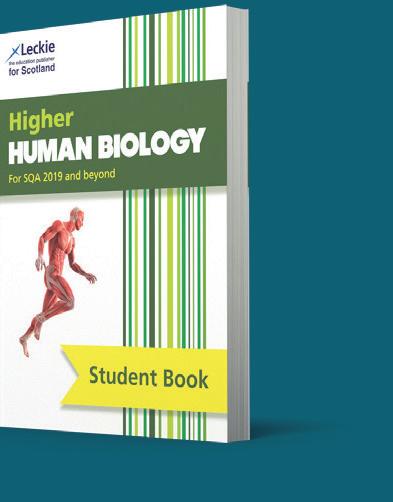
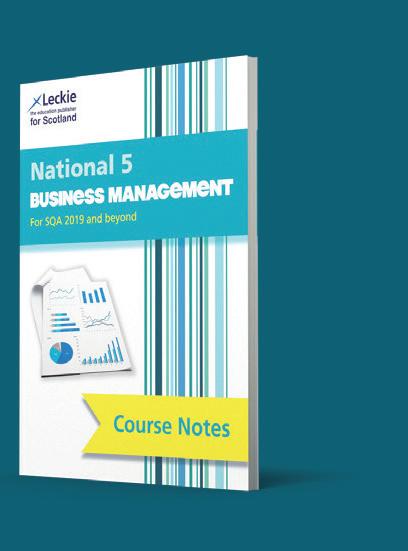

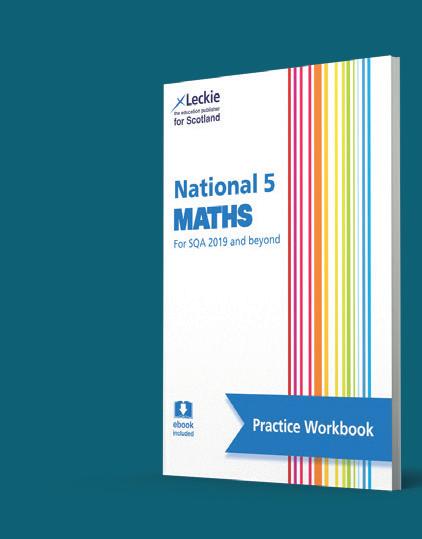
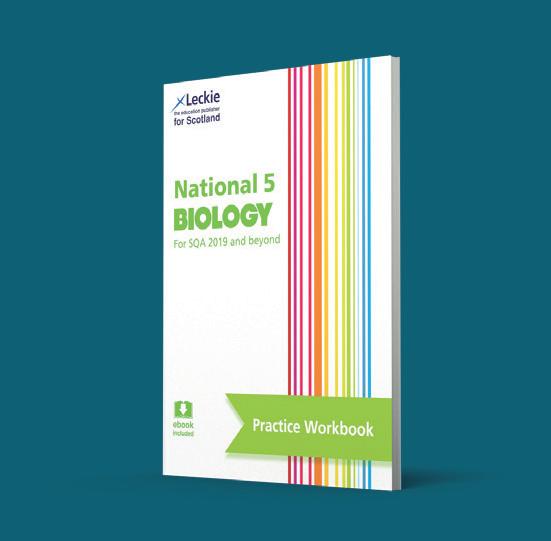



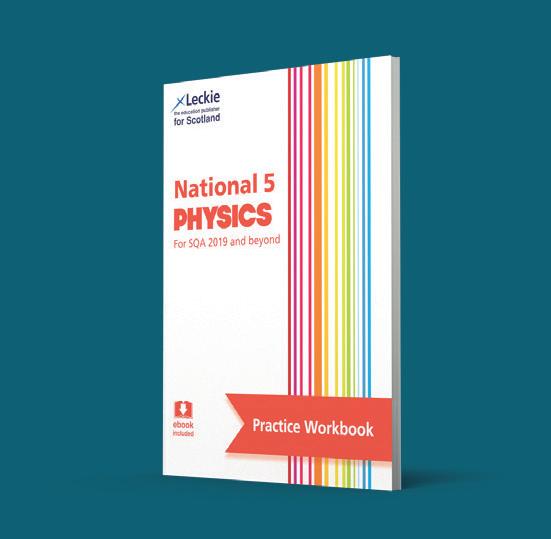

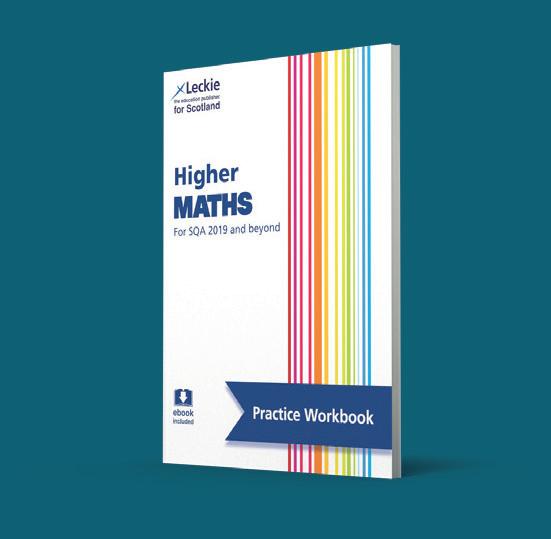

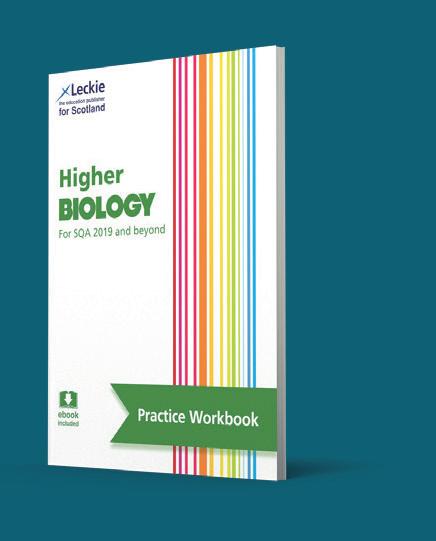





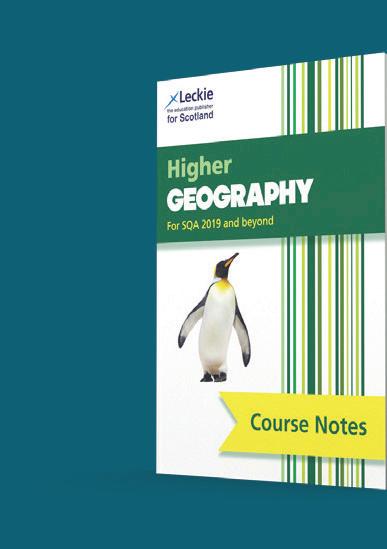
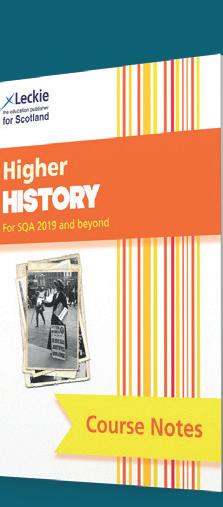









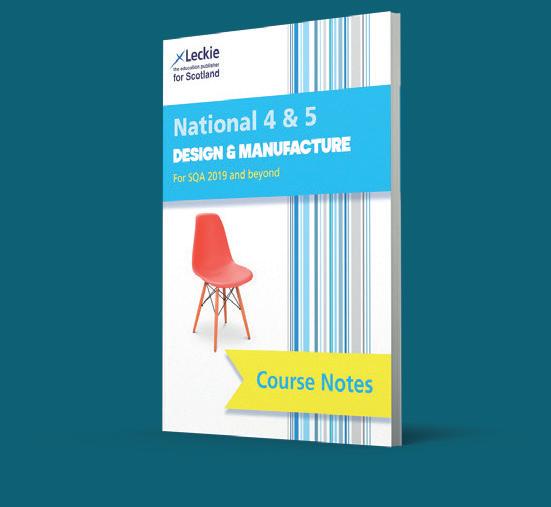









There’s no doubt that artificial intelligence will play a part in all areas of society in the future, especially in education, but what are the pros and cons, and how can you utilise AI tools in the classroom now?
In the ever-evolving landscape of education, you might be seeking innovative tools and methods to help engage your pupils and enhance their learning outcomes. As you strive to equip young people with the skills they need for the future in some of the most important years of their life, the integration of artificial intelligence (AI) and smart assistants has emerged as a powerful ally in the classroom.
Whether you are well versed in the world of tech or not, there’s no
denying that AI has become an integral part of daily life and it is continually growing. From using Google Translate, to using the smart assistant built into your mobile phone to send a message or check the weather, you probably already use AI without even realising. Whilst it can o er numerous benefits in the classroom, AI can also present challenges that require careful consideration. With the age of ChatGPT upon us, we’re exploring how AI can serve as a valuable
resource for you as a teacher, the potential this has to enhance learning, whilst addressing the concerns that come with this and how you can start to navigate these uncharted waters.
Lesson planning is the foundation of effective teaching, and implementing AI can transform the way you approach this crucial task. AI tools, such as ChatGPT and it’s equivalents, can assist you in generating creative and engaging lesson plans tailored to your subject. By simply inputting a topic or learning objective into a free service like this, you can receive instant suggestions for activities, resources or lesson structures. This not only saves time, but can encourage you to explore new approaches, creating a dynamic and adaptable classroom environment. This software shouldn’t replace your own approach to lesson planning, it could even act as inspiration when you want to refresh an existing lesson, or you’re stuck on how to approach a particular topic in a way that excites your pupils.
The integration of AI into the classroom experience goes beyond lesson planning, and can come in simple forms. Smart assistants can be actively involved in the teaching process, enhancing students learning by getting them to ask for information, timers, or games relating to the lesson. It can also help you to make learning more personalised. These tools can be utilised to adapt existing content you have already made to each young person’s needs and abilities. In a diverse classroom environment, this can improve learning, reduce stress, and help ensure no pupil is left behind. It’s also a great way to expand on existing course content to ensure that advanced learners are suitably challenged and engaged during lessons. Smart assistants, like Amazon’s Alexa or Google Assistant, can also facilitate group activities and collaborative learning. They can assign roles, provide prompts and monitor progress, allowing you to focus on guiding and mentoring pupils rather than managing logistics.
Education doesn’t stop when the school bell rings, and this is where some of the concerns around the use of AI come to the forefront: outside of the classroom walls there are fewer ways for you to control how pupils utilise the
technology. AI and smart assistants can extend support to pupils as they tackle assignments and projects at home, helping with research and providing inspiration or explanations when they find themselves stuck on a particular topic. This accessibility to information can foster a sense of independence, but it can also take too much pressure off of pupils when carrying out their own thorough research.
In an effort to combat this, it can help to run pupils’ work through plagiarism checkers and also set boundaries with them on how they can use AI.
When advising pupils on how to use this technology for good, clear boundaries and guidance are essential. One significant concern is the risk of students using AI to complete assignments without genuine effort or understanding. Encourage young people to use AI to create personalised study plans in the lead up to exams or assessments, or to offer them prompts and inspiration if they are struggling to get started with work. AI should be a tool to aid learning, not a substitute for their work.
Having conversations about the importance of academic integrity and the value of learning can help instil young people with the morals they need to use these tools for good during their time at school.
Privacy and data security are other critical issues. Schools and teachers must ensure that student data is handled securely and transparently, adhering to relevant regulations and best practices. It is essential to choose AI solutions that prioritize privacy and provide robust security measures, and to avoid using yours, your school’s or individuals’ names when using these tools.
Despite concerns, AI and smart assistants hold immense promise for teachers and students alike. By embracing these technologies, you can create a dynamic and engaging classroom experience, and empower students to take control of their learning journey.
If you would like information and advice on using AI in the classroom, read information from the Russell Group (www.russellgroup.ac.uk) and the Department for Education (consult.education.gov.uk) on this topic.

“AI and smart assistants hold immense promise for teachers and students alike”
To truly thrive in your role as an educator, it’s important to continue learning yourself. Continued professional development (CPD) is not an option but a necessity. CPD empowers you to excel in your role, ensuring you remain at the forefront of educational advancements, and can keep you passionate in your role.
As a teacher, you hold the key to unlocking the potential of every pupil who walks through your classroom door. By engaging in CPD, you can approach challenges with enthusiasm and see each academic year as an opportunity for personal and professional growth. CPD also enables you to adapt to the diverse learning needs of your students, fostering an inclusive and supportive learning environment where every young person can thrive.
To fulfill CPD requirements set by the General Teaching Council for Scotland (GTCS), each year, you are
required to complete a minimum of 35 hours of professional development. These hours should encompass a balance of formal and informal learning experiences.
Formal learning activities include attending workshops, seminars, conferences, and accredited courses. These structured programmes o er deep insights into general education advancements, subject-specific knowledge, and innovative teaching strategies.
Informal learning, on the other hand, involves reflective practices, research, and collaborative learning with peers. Informal activities encourage self-directed exploration, allowing you to tailor your learning journey to your specific interests and challenges.
CPD is your passport to gaining additional professional experience and knowledge, whilst aiding your pupils’ learning. The opportunities
available throughout Scotland can line up with the curriculum, whether this is in your specific subject or more generally. By browsing for a course that suits your experience and knowledge, you can have a fulfilling and meaningful CPD experience.
If you are looking for ways to fulfil your CPD requirement, use these organisations to search for available courses throughout Scotland, or contact your local higher education institution to see what they o er.
General Teaching Council for Scotland
www.gtcs.org.uk
Free Courses in Scotland
www.freecoursesinscotland.co.uk
Time for Inclusive Education
www.tie.scot
Scottish Qualifications Authority
www.sqa.org.uk
Continued professional development isn’t just a requirement for teachers in Scotland, but also a way to continue your own learning
We are welcoming Assessment Specialists who wish to become examiners across the Cambridge curriculum with our range of syllabuses in Cambridge IGCSE TM , Cambridge O Level, and Cambridge International AS & A Level.
You will gain an insight into the teaching and assessment of Cambridge qualifications, and we offer training and support with freelance opportunities which fit around your existing commitments.
For more details, just visit cambridgeinternational.org/examiners
With almost a quarter of young people in Scotland living in poverty, schools play a pivotal role in providing and signposting to support for pupils who are less fortunate. This vital help can ensure pupils can follow their career dreams, and help them to obtain good qualifications at school
The attainment gap, the divide between disadvantaged pupils and their peers, won’t be a new concept to you as an educator: as 24 per cent of children in Scotland live in poverty, schools play a vital role in o ering support, often past what they are obliged to. Providing additional meals, school clothes and materials, or even a warm place to study after classroom hours, this support can be life-changing for young people.
The Scottish Government also has a focus on closing this gap through the Scottish Attainment Challenge 20222023 and 2025-2026, including annual investments to support children and young people impacted by poverty.
With school budgets already stretched to breaking point, or past it in some cases, it can be di cult to continue providing this help. As the cost of living crisis continues and winter draws closer, outside support becomes imperative to continue helping the school community.
The support can come in many di erent forms, with some of them creating a long-term positive change. Helping young people to achieve their aspirations through finding good work or moving on to higher education can break the poverty cycle
and set them up for a better future. Depending on your location, your school might be able to take advantage of so-called top-up schemes to help pupils in their last two years of school. These schemes can help young people to achieve higher grades in their exams, taking their backgrounds into account. This could be a year-long programme, or a summer programme that particular pupils are eligible for. Information about this support is often available through Education Scotland (education.gov.uk), or directly through higher education providers.
Socio-economic background has the biggest role to play in the attainment gap faced by Scottish pupils, and while this is something that can’t be immediately changed, as a teacher you can help o er support that aids not only your pupils, but their whole family.
As winter approaches the cost of living remains high, many families will be finding it harder to have nutritious meals or keep homes warm. This can have an adverse e ect on pupils and their school work, especially if they are at a pivotal stage in their education, but there
is support out there to help. These resources can also be helpful for any pupil going through a di cult time, like changes at home due to a loss or divorce, or pupils who are experiencing mental health problems. Taking a holistic approach to o ering support can make a greater di erence than focussing on one area if you are sharing resources to the whole school community.
This time of year is a great time to take a whole-school approach to highlighting resources, but this has to be done in a mindful and considerate way. Some young people or families might not want to accept support, or think of this as charity. Introducing topics into lessons, registration classes, or in assemblies is a great way to highlight resources without making anyone feel singled out. This can also help educate the wider school community on the challenges that some people are facing in these circumstances. If there is a particular pupil you are especially concerned about, asking your school’s guidance counsellor to talk to them one-to-one can be helpful.
Regardless of the approach you take, ensure you aren’t stigmatising these sensitive topics when approaching them. This could mean including case studies or easy-tofollow examples in your lessons, or highlighting organisations that o er support to show that this is something that many people experience.
You aren’t alone in o ering support on issues that a ect pupils both in and out of the classroom.
You aren’t alone in offering support on issues that affect pupils both in and out of the classroom
Mentally Healthy Schools (www. mentallyhealthyschools.org.uk) brings together resources, information and advice to support schools in promoting mental wellbeing. This includes a resource library organised into the di erent stages of school, and guidance on taking a whole-school approach to mental health.
If you would like to provide better support to pupils who have experienced a loss, Cruse Scotland (www.crusescotland.org.uk) can provide bereavement training for educators and also have a host of
resources for schools including tools for sta on how to support pupils.
If you are promoting a breakfast club or after school club that helps combat food insecurity, but need additional support to run this, FareShare Scotland (www. fareshare.org.uk), the leading food redistribution charity in the country, could help. The organisation saves surplus food from going to waste, and instead gives this to community groups, charities and vulnerable people. You can apply to receive food through their website.
By sharing these valuable resources, you could not only be helping to close the attainment gap over time, but in some cases, you could also aid the wider school community.
If you are worried about a specific pupil at school or in their home life, speak to your department head, a school counsellor or your head teacher to discuss the next steps and what you are able to do to help.
The Classroom provides schools and youth groups with a wealth of interactive activities and dynamic resources, challenging young people of all ages and abilities to independently interpret and reflect on our history through contemporary conversations. Empowering them to shape their own views around Remembrance, the poppy and its legacy.



From January 2023, Lady Haig’s Poppy Factory in Edinburgh reopens with a brand-new tour experience exploring the lives of a poppy: a small flower with a huge legacy. Immerse yourself in our symbol of Remembrance. Explore the evolution of the poppy, meet its makers and understand the lifechanging support it still provides to this day.
For more information on Poppyscotland Learning visit poppyscotland.org.uk/learning
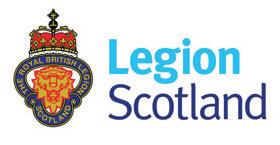
Bud is Poppyscotland’s interactive micro-museum travelling across Scotland sharing the story of the poppy. Bud is helping us to challenge assumptions and create conversations. A place where you can learn, shape and share your own story of reflection and hope. Helping us keep Remembrance relevant all year round.

As a teacher, your support is essential to pupils’ UCAS application process. By offering vital guidance and support, you will help them to decide on the right path for them, and you can help along the way
As your pupils think about their future and embark on their UCAS applications, they will rely on you to understand the process and to offer the right advice. Some students won’t have anyone else to turn to for help and will need more support than others. It’s a nerve-wracking process and your pupils are putting a lot of trust in you, so make sure to reassure them and arm yourself with the right information ahead of time.
Each UCAS deadline will approach faster than expected, and it’s your job to know exactly when. As of 5 September 2023, undergraduate applications are open and young people can start the process. From this point, pupils can fill in their personal details, qualifications and course choices on the site. Then they can write their personal statement and add their references.

Applications must be submitted by 16 October 2023 for Oxford and Cambridge University, and any medicine, veterinary or dentistry courses. For all other courses the deadline is 31 January 2024.
A personal statement consists of two questions: why have I applied to this course, and why should you accept me?
It’s your job to help students answer these questions and create a personal statement that will stand out to course leaders. Discuss with your pupil what
extracurricular activities they have participated in and see if anything will make their application unique.
The best way to begin a personal statement is just to start. It’s okay for students to begin in the middle if it gets the pen to the page: you can help them to refine this and master the structure later. Once they have finished their first draft, you can ensure that each paragraph mentions something about the course and a reason why the student is suited to it, with the conclusion tying it all together, and help them make any edits to improve the statement.
Your students will be eager to get their references as soon as possible, as it’s normally the last stage in the process before they submit. Don’t be
too surprised if your pupils pester you at this point, after all, a good reference takes time, and you will want to write the best one possible ahead of the application deadline.
Focus on your pupils’ academic performance and avoid vague sentences or compliments. Consider what your student has achieved and how they’ve performed over the year and relay this to the course leaders. Whilst you should focus on facts and qualities, you are allowed to be enthusiastic about their achievements, so don’t shy away from this.
Did you know that UCAS has online pages dedicated to teachers and other education professionals? Discover information and advice at www.ucas.com
“Focus on your pupils’ academic performance and avoid vague sentences”
As a teacher, you play a crucial role in shaping your students’ futures. As young people start to decide what they’ll do after leaving the high school walls, it is essential to support them as they pursue their next steps, including the path to college
Guiding your pupils through the college application process could include anything from advising your pupils on what they should consider when choosing the right college, through to supporting them during the application process or even being their reference.


One of the first steps in the college application process is helping your students explore their interests and career aspirations so that they can make the right choice in terms of course and location. Provide resources and support to help them discover potential career paths by engaging them in conversations about their passions, strengths, and aspirations. This chance for self-reflection will allow them to make informed decisions about their college choices.
Staying up-to-date with the diverse college options available is crucial. Familiarise yourself with various institutions, their di erent programmes and departments, and the general admission requirements. This
is especially important if you spend time coaching pupils on applications, or if your school doesn’t have a dedicated careers advisor to o er tailored support during this time. By doing so, you can match your students with colleges that align with their interests and goals, and ensure they are happy and fulfilled in their next steps.

Navigating college applications can be daunting for young people. As their trusted guide, you can help simplify the process. Assist them in preparing the required documents, like their personal statement and a reference. When o ering guidance on crafting compelling personal statements, ensure they cover why the course is a good fit for them, whilst tying in their personalities and achievements.
The college application process can be emotionally taxing for many pupils. The fear of rejection, self-doubt, and anxiety can take a toll on their wellbeing. Be attentive to their emotional
needs, o er encouragement, and remind them that their worth is not defined by getting a place at their first choice – there’s no wrong path after all.
There are several resources available to help students with their college applications. Make sure your pupils are aware of career counselling services outside of school that are available through Skills Development Scotland, and the online resources that UCAS provide in relation to college applications. Encourage them to attend college fairs and open days to get first-hand experience of di erent institutions and the opportunities they o er.
Your impact on the lives of young people is immeasurable, and by supporting and advising your students during their college journeys, you are ensuring this impact lasts during the rest of their lives.
Access more information and guidance around supporting pupils through the college process from UCAS (www.ucas.com), Skills Development Scotland (www.skillsdevelopmentscotland.co.uk), and Colleges Scotland (www.collegesscotland.ac.uk).
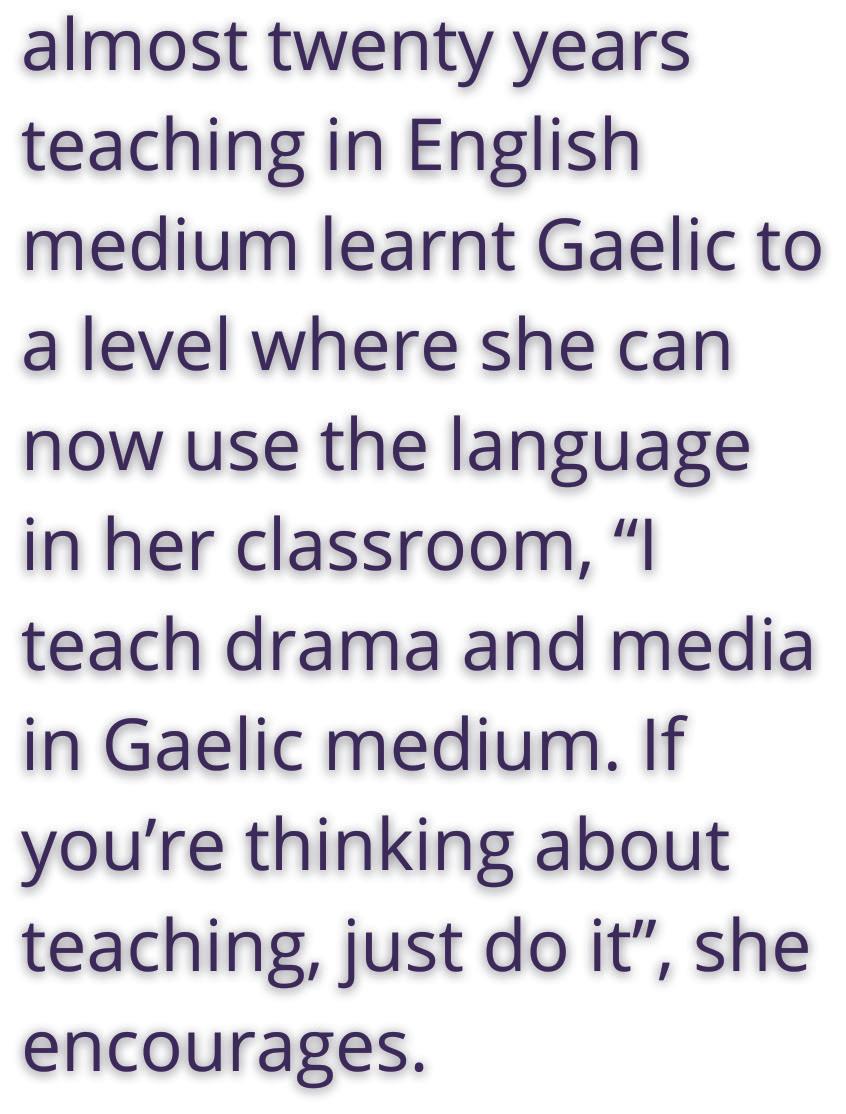


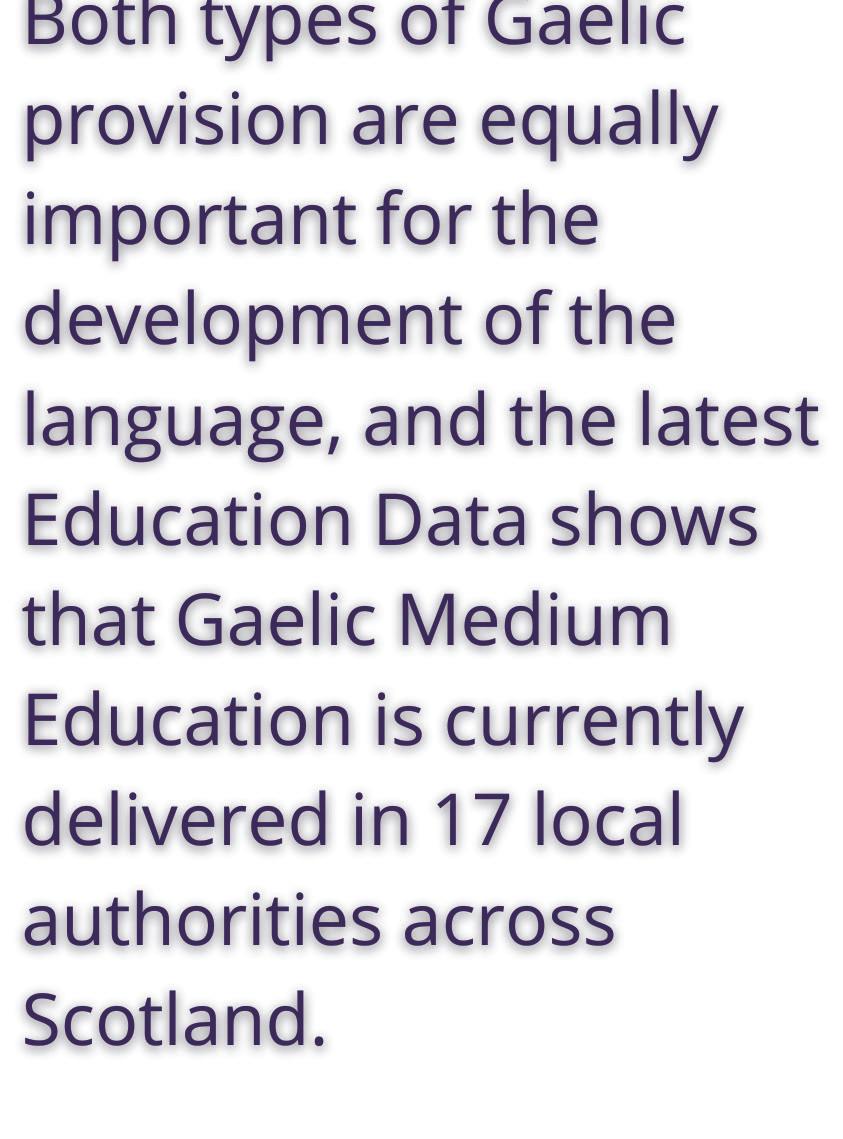
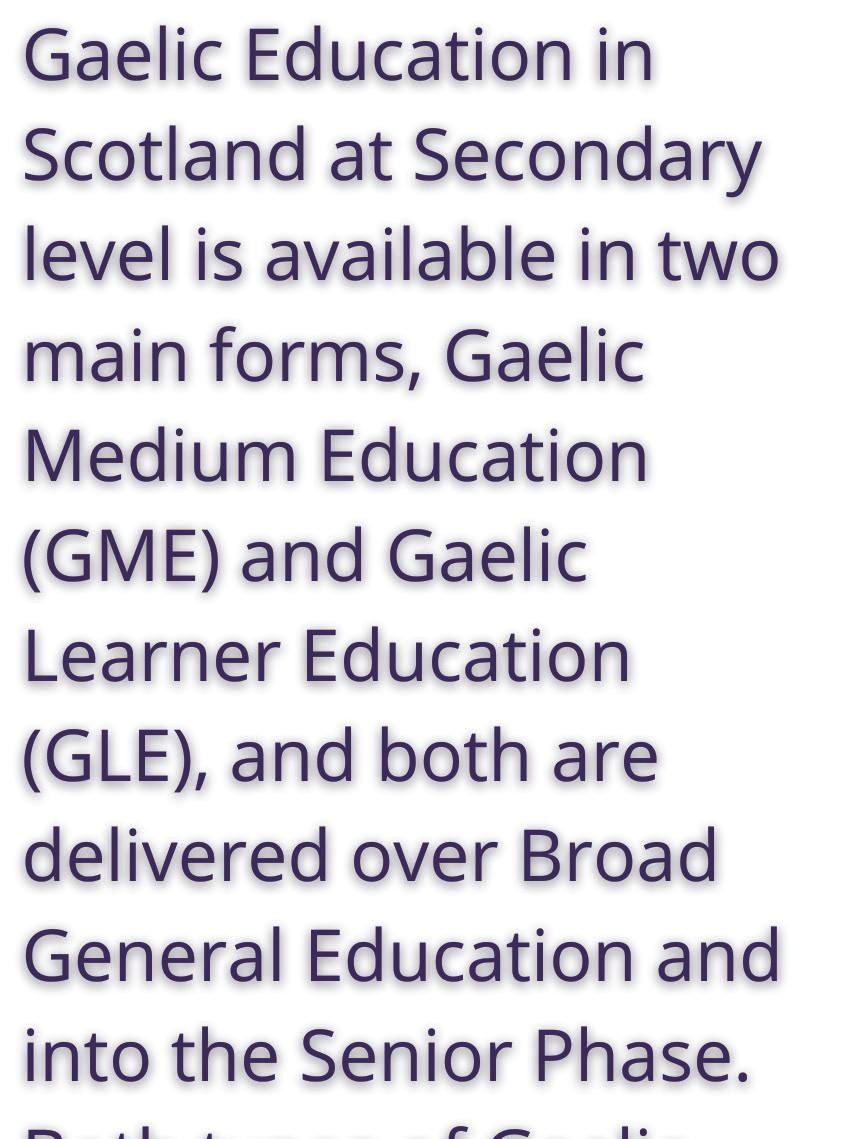




































Whether you are looking to get in control of your own finances, master your budget ahead of the winter months, or teach pupils essential information about managing money, there’s help and resources at hand
As an educator, you play a crucial role in shaping young people’s minds. However, the rising cost of living and financial pressures can often make it challenging to effectively plan for the future. Here, we’re sharing insights on how you can manage your money effectively, highlighting initiatives that support teachers with the cost of living, and shedding light on the importance of teaching financial literacy for pupils, and what can help.
To navigate the challenges of managing finances effectively, start with simple budgeting practices. Creating a budget can help track expenses and identify areas where savings can be made. Additionally, consider automating savings through direct deposits, helping you to set aside a portion of your income each month into a savings account for future financial security, even if it’s a very small amount.
Planning for retirement is essential for not only teachers but everyone. Teachers should take advantage of the pension options available to them to enhance their long-term financial security. You could look into increasing your pension contribution or finding out if you are on track to receive a workplace pension that will support you when you are no longer working.
The Scottish Government is committed to supporting teachers with the cost of living through various initiatives, such as housing assistance schemes and grants for professional development. It’s essential to be aware of these opportunities and utilise them if you need to.
With the rise of the gig economy, teachers are in a unique position to explore part-time opportunities or freelance work during holidays or weekends to supplement their income. Tutoring is a great way to do this, however, it is crucial to maintain a healthy work-life balance while taking up additional commitments so always consider your current schedule and what you can take on.
As a teacher, you have the responsibility to equip young people with essential life skills, and financial literacy is one of the most crucial ones. Educating teenagers about managing money can empower them to make informed financial decisions throughout their lives, and this is something that isn’t always taught at home.
Introducing financial literacy as part of the school curriculum can have a lasting impact on students’ financial wellbeing. Creating dedicated lessons or incorporating financial concepts into existing subjects can make learning about money management engaging and relevant. If this isn’t something that already exists at your school, speak to your department head or head teacher about making positive changes to support pupils. This could start out as something simple like a dedicated assembly or a chat during registration class.
Engage students with interactive activities that simulate reallife financial situations. These activities can include budgeting games, investment simulations, and decision-making exercises that teach them the consequences of financial choices.
Collaborating with local banks or credit unions can provide students with valuable insights into banking services, savings
accounts, and personal finance tools. Guest speakers from financial institutions can also share their expertise and real-life experiences.
Encourage students to participate in financial literacy programmes and competitions that promote financial literacy awareness. These initiatives can inspire healthy competition and boost students’ interest in money management, and some are already available for schools. Natwest run the My Money Sense programme (natwest. mymoneysense.com) which includes resources and games to help educate pupils about their finances and prepare them for the future.
It can help to involve parents in this process by providing them with resources and guidance to support their teenagers’ financial education. Encouraging financial discussions at home can reinforce the lessons learned at school. By taking proactive steps to manage your own money and leveraging available resources, it can be easier to navigate financial challenges effectively and secure your financial future. As educators, it is also your duty to ensure that students are equipped with the knowledge and skills to make informed financial decisions. By incorporating financial literacy education into the curriculum and engaging students with interactive learning experiences, you can help to empower the next generation to build a financially secure and prosperous future.
If you need financial advice or want to access more resources, contact Money Advice Scotland (www.moneyadvicescotland.org.uk).
“By taking proactive steps to manage your own money and leveraging available resources, it can be easier to navigate financial challenges effectively”
Costco Wholesale is a membership warehouse club, dedicated to bringing our members quality goods and services at the lowest possible prices. We provide a wide selection of merchandise, plus the convenience of speciality departments and exclusive member services, all designed to make your shopping experience a pleasurable one. We are confident in the quality and value of our products, and we stand behind them with our guarantee of satisfaction. For more information and to preview our warehouses visit www.costco.co.uk/join or scan the QR code.

Become an Executive Member and earn an annual 2% Reward on most of your Costco purchases*. The annual membership fee for Executive Trade Membership is £56 ex VAT (£67.20 inc VAT) and as an Executive Individual Membership is £62 ex VAT (£74.40 inc VAT). The annual membership fee for Standard Trade Membership is £22 ex VAT (£26.40 inc VAT) and Standard Individual Membership is £28 ex VAT (£33.60 inc VAT), all memberships include a complimentary card for your spouse or domestic partner.





To join and start saving please provide one piece of business evidence for Trade membership, or for Individual membership your employee ID card or current pay slip to prove your employment, PLUS one piece of photographic identification for both memberships.
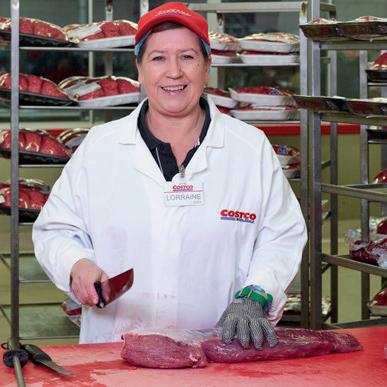



£10
Expires: 31st December 2024



Costco Glasgow, St Rollox Business Park, 15 Cobden Road, Springburn, Glasgow, G21 1YX





T: 0141 553 2201 E: marketing103@costco.co.uk







www.costco.co.uk

In 2020, the Sco ish Government released a review on Scotland’s technology ecosystem, raising questions of how schools and teachers were involved. Three years later, evidence shows that this can result in fast and effective progress
In the digital age, technology isn’t just changing our world: it’s shaping the future. As teachers, your role in nurturing the next generation’s tech-savvy leaders has never been more critical. You can play a pivotal role in improving Scotland’s technology ecosystem and igniting young minds’ interest in tech through subjects like computing.
The spotlight was on the country’s technology ecosystem in 2020 when Kate Forbes, the former Cabinet Secretary for Finance and Economy, commissioned Professor Mark Logan, former chief operating o cer of Skyscanner, to develop a review of the area. When released, the Scottish Tech Ecosystem Review (STER) was praised for its vision and ambition, and in the three years since, Mark Logan has emphasised the role of education in achieving its ambitions.
Mark has underscored the impact of letting teachers lead change in education. His belief in the value of teachers’ input extends beyond the classroom and into the realm of technology: your insights, grounded in everyday classroom experiences, can significantly influence how the technology ecosystem evolves to better serve students and society.
One of the key tools at your disposal for shaping the technology landscape is the curriculum. The STER identifies a need for a curriculum that aligns with the rapidly changing tech environment.
It’s imperative that the curriculum not only imparts technical skills, but also fosters critical thinking, problemsolving, and adaptability - all of these skills are essential for success in the digital era.
Getting young people excited about technology is essential to ensure a robust tech ecosystem in the future, and introducing subjects like computing and coding early in secondary education can ignite a passion for technology.
Encourage your pupils to explore coding, robotics, and digital creativity, and make tech engaging in the classroom by connecting it to realworld applications and industries, demonstrating its relevance in today’s job market.

The review sparked significant improvements in computer science education, with Mark declaring the subject as a vital part of the curriculum when considering the skills needed for careers in tech. Developments in the subject since the report mean that as teachers, you now have access to updated resources, training opportunities, and support to deliver cutting-edge computer science education in Scotland’s schools.
By inspiring young minds to embrace tech through engaging subjects like computing, you lay the foundation for a generation of tech leaders and innovators.
As advancements in computer science education improve and the importance of technology in our lives grows, your role becomes even more vital.
To read the full Scottish Tech Ecosystem Review from 2020 and all updates, visit the Scottish Government website (www.gov.scot).
“Encourage your pupils to explore coding, robotics, and digital creativity”

Fostering innovation and creative thinking in young people is essential in the classroom, and this initiative could help inspire your pupils to pursue a STEM role in the future whilst helping their community

Samsung’s Solve for Tomorrow initiative presents a brilliant opportunity for Scottish teachers and pupils alike. The groundbreaking programme encourages students to tackle real-world issues through innovation and technology, enhancing their problem-solving abilities whilst making a positive impact on their communities.
Samsung’s Solve for Tomorrow is an innovative, nationwide competition that empowers young people across the UK to create meaningful change through the application of science, technology, engineering, and mathematics (STEM).
Launched with the National Schools Partnership, this initiative provides people aged 16 to 25 with a unique platform to address real-world challenges whilst honing their STEM skills.
At the heart of the programme lies its mission to encourage pupils to think critically and creatively. Participants are tasked with identifying an issue in their local community that can be addressed using STEM solutions. The programme not only motivates young people to tackle these problems head-on, but also nurtures their teamwork, problemsolving, and communication skills.
The best 24 entries to the programme will be chosen to take part in a series of workshops, helping to take their
“This initiative is an opportunity for you to inspire pupils to become problem-solvers and innovators”
ideas to the next level. There are prizes for the top three entries, with the first prize being a £10,000 cash prize and three months of mentoring, industry connections and networking opportunities for young people.
Solve for Tomorrow operates on a simple yet powerful principle centred around four factors: challenge, ideate, innovate, and impact.
Challenge: The programme begins with a specific challenge that pupils need to address. Samsung, in collaboration with various partners, has identified key societal issues, ranging from environmental sustainability to healthcare improvements. These challenges are designed to align with the United Nations Sustainable Development Goals, encouraging students to think globally while acting locally.
Ideate: Teams of pupils, guided by their teachers, can embark on a journey of creative thinking by brainstorming ideas, conducting research, and analysing the chosen challenge to develop a comprehensive understanding of the problem they aim to solve.
Innovate: Armed with their ideas and research, teams then set out to innovate, applying STEM principles to design creative solutions. This phase involves building prototypes, coding software, or conducting experiments – all while developing invaluable technical skills.
Impact: The most crucial phase is
making a positive impact. Teams put their solutions into practice, applying what they’ve learned throughout the process to address the challenge they’ve chosen. This is where the real-world impact of the initiative is felt, as pupils contribute to their communities and the world at large.
Getting your pupils involved in Solve for Tomorrow is a rewarding endeavour that can ignite their passion for STEM and community engagement. Start by introducing them to the initiative through sharing success stories, videos, and information from the Solve for Tomorrow website to pique their interest. Emphasise the real-world impact they could have by highlighting the significance of addressing the given challenges. You could discuss the potential impact they can make in their local communities, reinforcing the idea that their efforts matter. Encourage your pupils to form teams based on their interests and strengths: diversity in skills and perspectives often leads to more innovative solutions and this is a great lesson for their future.
As a teacher, your role is crucial in the programme. Offer guidance and mentorship as young people navigate the different phases, encourage critical thinking and problem-solving skills.
Integrating Solve for Tomorrow into your curriculum is a fantastic way to make STEM subjects more engaging
and exciting for your pupils, and there are plenty of ways to incorporate it into lessons.
Collaborate with colleagues from various subjects to create a multidisciplinary approach. For instance, a science teacher could work with a language arts teacher to help pupils craft compelling project proposals. You could establish a STEM club or extracurricular activities focused on Solve for Tomorrow which can provide young people with additional time and resources to develop their projects.
Design project-based lessons that align with the initiative’s challenges so that pupils can work on their solutions during class time whilst learning, ensuring they have the necessary support and resources. If pupils need some inspiration, why not invite guest speakers to visit the school?
This initiative is an opportunity for you to inspire pupils to become problem-solvers and innovators. By encouraging young people to tackle real-world challenges through STEM, educators can empower the next generation to make a positive impact on their communities and the world.
Utilise the wealth of resources available on the Solve for Tomorrow website (www.samsung.com/uk/ solvefortomorrow) and access lesson plans, webinars, and support materials to help pupils on this project.
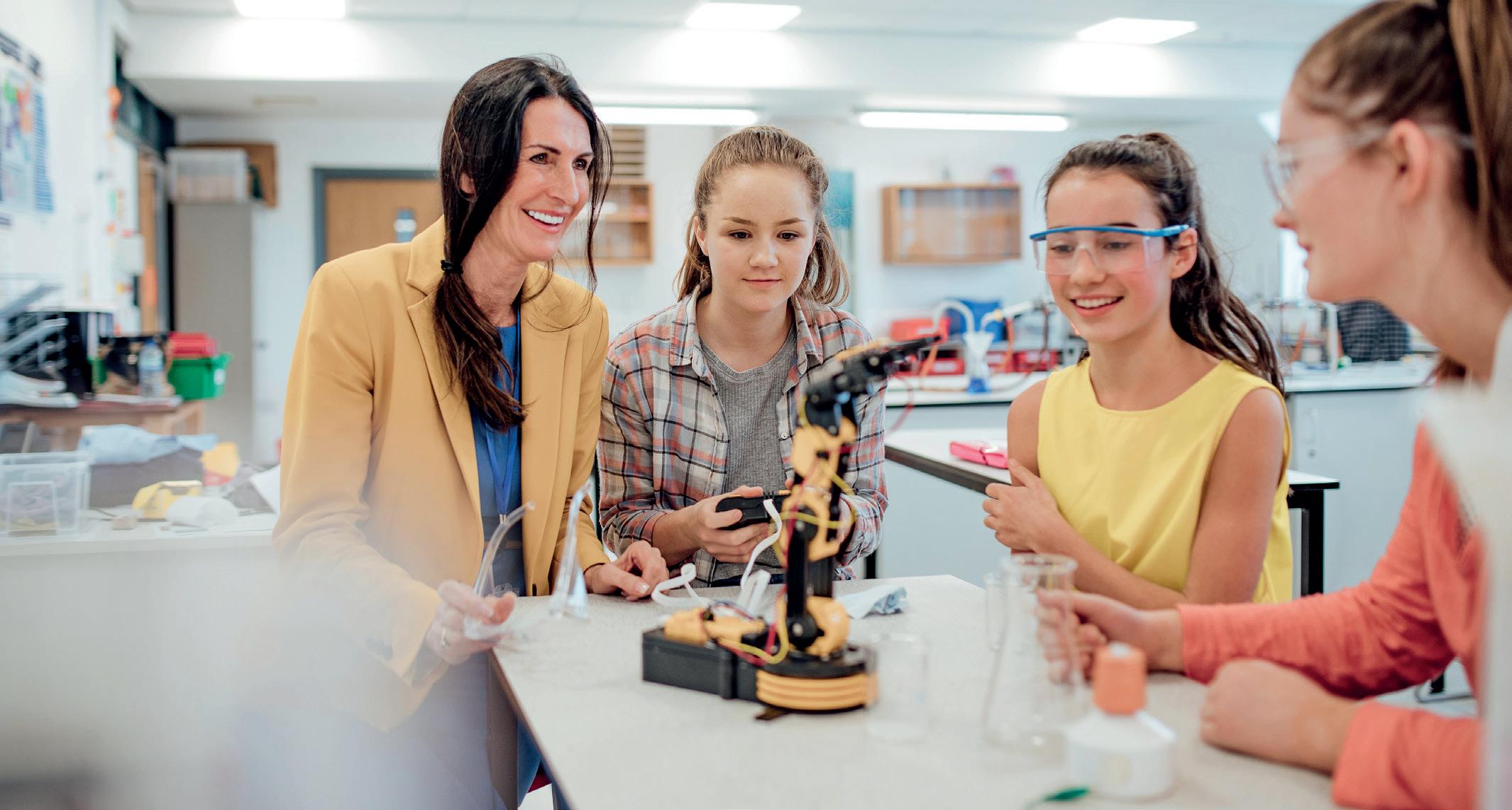
Find out for yourself how the power of learning in the wilderness can support wellbeing and develop resilience in young people.
This free taster course is for head and deputy head teachers, educational professionals, apprenticeship providers, and employers who would like to learn first-hand:

How outdoor learning can build resilience, confidence and self-belief in young people. How other schools, employers and experts are using the outdoors to amplify learning.
How an Outward Bound residential specifically uses the wilderness to develop the skills needed to thrive in school, at work and in life.
Find out more and sign up at: outwardbound.org.uk/tasters




A lack of funding, retention and recruitment issues, and burnout are all playing a key role in job insecurity in Scotland’s schools, as unions and educators fight for change to improve the education sector

As we head towards the end of another term, the challenges facing schools, support staff and teachers in Scotland have reached a critical point. From job insecurity due to funding cuts, to high levels of stress, staff shortages and an alarming number of vacancies, the teaching profession is under immense strain. These pressing issues will have extreme consequences for educators and young people if they aren’t resolved, but despite years of fighting from teachers and unions, this doesn’t feel like a priority for those in charge.
A primary factor exacerbating the issues within the Scottish teaching profession is the declining number of individuals pursuing a career in
education, coupled with a concerning rate of teachers leaving the profession. In 2022, over 4,300 teachers left the teaching register, leaving a gaping hole in the system that hasn’t been filled.
At the outset of the current parliamentary term, the Scottish Government made a pledge to recruit an additional 3,500 teachers over the next five years. While the onset of the pandemic sparked initial interest in joining the profession with higher numbers of applicants, this enthusiasm has not been sustained. According to UCAS, applications for teacher education courses in Scotland plummeted by 28 per cent in 2022 compared to January 2021, and they were 4.5 per cent lower than in 2019.
The alarm bells ring louder when we consider that universities failed to meet recruitment targets for secondary teacher education courses in Scotland. More than one in ten places went unfilled, and postgraduate courses, which serve as the primary source of new secondary school teachers, also fell short of their targets. The shortage of teachers in subjects such as physics and mathematics is of particular concern. Physics teacher education courses faced a dire situation, with more than 50 percent of places left unfilled. This crisis threatens not only the immediate wellbeing of teachers already in schools around the country, but also the quality of education young people are able to receive.
The toll of these factors, paired with the other stresses of school life, on teachers’ mental health is reaching alarming levels. A 2021 survey revealed that seven out of ten teachers frequently or always feel stressed in their job, with half describing their wellbeing at work as very poor or poor. The relentless pressure to deliver despite budget cuts, staff shortages and a high-stress environment have created a breeding ground for burnout.
Burnout is a debilitating state of physical and mental exhaustion, often stemming from prolonged exposure to stress. Symptoms include persistent fatigue, feelings of defeat, and a sense of being trapped. Left unaddressed, burnout can lead to prolonged absences from work, exacerbate mental health issues, strain relationships, and comes with a need for a longer recovery period than regular feelings of stress. For teachers who bear the weight of ever-increasing classroom demands, burnout threatens to lower performance
and negatively affect the entire school community.
While there is a necessary growing focus on young people’s mental health, we must not overlook the pressing need for conversations and support systems that address the mental wellbeing of education professionals. More support has to be provided, including funding, to ensure these resources are available before the situation worsens.
The recent historic teacher pay deal is undoubtedly a victory for Scotland’s education professionals, however, it this is just one step towards addressing the number of issues affecting teachers and schools. All of these factors are contributing to increased workload, sometimes past what teachers are able to complete in the work day.
According to a NASUWT survey, 59 per cent of teachers have reported a significant increase in their workload, with half feeling disempowered by management. This trend has been intensified by the ongoing teacher workforce crisis, years of funding cuts, and the relentless challenges posed by the pandemic that still prevail in schools.

The consequences of unmanageable workloads are far-reaching and solutions are needed now. Insufficient time for required professional development, pressure to extend working hours, and the risk of leaving the profession altogether should all be motivators for change.
Unions have been at the forefront of demanding action on behalf of teachers. Initiatives such as the EIS Time to Tackle Workload campaign and NASUWT’s efforts to demand action from governments highlight the relentless advocacy for teachers’ rights and wellbeing. The calls for support and change have been echoed by much of the public who understand the key role teachers play in society.
The struggles facing the education sector in Scotland are undeniable, with job insecurity, stress, staff shortages, and an overload of vacancies threatening the system’s stability. Despite this, the continued calls for change and action are a glimmer of hope that things will improve for both teachers and pupils in Scotland’s schools.
For advice on coping with stress caused by your work, utilise resources from Education Scotland (education.gov.scot) and Mentally Healthy Schools (www.mentallyhealthyschools.org.uk).
Tue
Shakespeare’s

Tue
Tue
2:22:


Tue

In recent years, Scotland has witnessed a concerning rise in the use of vaping products amongst young people: the Growing Up in Scotland survey in 2021 showed that more than 20 per cent of 14-yearolds have tried a vape at least once. With alarming statistics, mounting concerns, and an urgent need to protect future generations, there is a growing consensus that a ban on vaping products is necessary.
Recent reports from news outlets and schools around the country have shed light on the rising prevalence of vaping amongst Scottish teenagers. Disposable vapes have become especially popular, proving easily accessible and appealing to young people despite the fact that it is illegal to sell these to under 18s. The risks associated with vaping are a cause for concern with the possibility of these leading to nicotine addiction and other health complications. Councils across Scotland, like Dundee City Council and West Lothian Council, have already
recognised this alarming trend and are actively pushing for a ban on vaping products.
Healthcare professionals from across the country have joined the movement, recognising the importance of safeguarding young people from the detrimental effects of vaping. The widespread use of disposable vapes is also contributing to littering in schools around the country.
In the battle against vaping, teachers can play a vital role, sharing information on the harmful results they can have on pupils. ASH Scotland stands as a reliable ally for teachers, parents, and concerned parties. The charity has been a leading advocate for tobacco control and smoking cessation for decades, and in recent years their expertise has extended to addressing the vaping crisis and providing resources to support
Access resources from ASH Scotland online at www.ashscotland.org.uk
teachers and schools.
Dedicated programmes equip teachers with the knowledge and tools needed to educate pupils about the risks associated with vaping. The charity also offers guidance on implementing effective school policies and interventions to combat the use of vaping products on school premises.
Their online platform offers a wealth of information, research, and guidance on tackling vaping-related issues. Teachers can access lesson plans, fact sheets, and interactive tools designed to engage students in conversations about the dangers of vaping. By incorporating these resources into your lessons, you can help prevent young people from falling prey to this harmful trend.
As the Scottish Government joins calls for a ban on disposable vapes, steps are being taken to reduce the risks to young people, but until this happens, education is key.

A growing number of young people in Scotland are using vapes, causing concerns for their health and spurring calls for an outright ban in schools and across the country
“Teachers play a vital role, sharing information on the harmful results they can have”
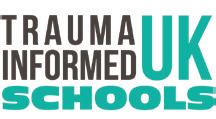

and Communities
(practitioner status)




• Many regions in the UK
• Level 5 Diploma
• On-line or live
• University route
Senior Mental Health Lead Training
Certificate in Child and Adolescent Mental Health (policy, practice and leadership)














• TISUK is an approved provider for DfE funded Senior Mental Health Lead Training.
• Devised and run by Senior Psychologists and Senior Educators

More information and how to apply: www.traumainformedschools.co.uk info@traumainformedschools.co.uk
(P/T weekend days only) leading to eligibility to apply for BACP registration
Course includes:
• CBT techniques for teenagers



• Using the arts in therapeutic conversations

• From trauma to recovery: key counselling interventions







• Emotion focused therapy and mentalisation
• Integrative psychotherapeutic interventions
• PACE for teenagers, parents and therapists (Dan Hughes)
Working with teenagers who suffer from:
• Self-harm
• Traumatic loss



• Unresolved trauma
• Depression/anxiety
• Eating disorders
• Blocked trust
• Locked in anger
• Low self-esteem
• Unmotivated/alienated from schoolwork
• Drug/alcohol addiction
Addressing:
• Vital Psychoeducation: What every teenager needs to know about life to live it well
• Social media and mental health
• Inter-generational transfer of trauma
• Supporting parent-teenager relationships

• Sexuality, gender, transgender and identity issues
• Working with diversity, complexity, difference and social injustice
• Risk assessments/knowing when to refer on
More information and how to apply: www.artspsychotherapy.org
Georgina@artspsychotherapy.org

Working in the education sector comes with highs and lows, and resilience is part of the job description. Perseverance is a key skill that organisations look for in their volunteers because each day is different. Like in teaching, the rewards of volunteering and changing peoples’ lives for the better will outweigh any challenges along the way.
Alongside helping others, the right volunteering opportunity will benefit you in ways you may not expect. You will learn, develop and hone your skills throughout the process and be able to transfer them to the classroom on your return.
Whether you want to volunteer in your local area throughout the rest of this year, or you are already planning ahead for next spring and summer, there are a host of opportunities available to suit your free time, preferences and skills.
As a teacher, you will have collected a special set of skills that other people will not be as fortunate to have. This is a chance to share your talents, especially when you can use them to help people outside of the classroom.
Volunteering will allow you to grow and learn things about yourself that you wouldn’t have otherwise. As a result, you might be able to improve your lesson plans or find new ways to relate to your students. By building new skills, you can become a stronger educator, and of course, you’ll have something new to tell your pupils about when they ask how you spent your summer break.
The experience will also look good on your CV if you want to advance your career further down the line. There’s endless ways to volunteer to suit your interests and location.
Education is a key pillar of society and is important for social development whether it’s here in the UK or further afield. Taking your skills global will allow you to connect directly with students of all backgrounds against a once-in-a-lifetime backdrop.
You could get involved with different programmes overseas, with multiple options to teach English to young adults in Europe. Go Overseas (www. gooverseas.com) has a variety of positions you can apply for, including summer camps and language schools.
Developing countries are also crying out for help from teachers. They are looking for educators that will make a real impact and offer students a brighter future. Projects Abroad (www. projects-abroad.co.uk) has several teaching projects in countries like Nepal, Tanzania and Ecuador. If you choose one of these programmes, it’s likely you will have to pay to participate in most
The unique experiences and skills you have formed working as a teacher will make you different from the average volunteer, allowing you to make a positive change in the world
ventures, but this cost usually includes food, accommodation, training and 24-hour support.
Children all over Scotland are struggling with their education and desperately need help to better understand their studies. High school can be challenging and socioeconomic gaps have meant some pupils are left behind. Tutoring is a great way to build up your experience, even more so for recently qualified teachers, and help young people who might not be able to afford additional support otherwise.
Volunteer Tutors Organisation Scotland (www.vtoscotland.org) supports children experiencing difficulties in their education through their learning hubs and individual sessions. The organisation recruits, trains and places teachers with pupils most needing one-to-one guidance.
Besides giving your time to a nonprofit, you will significantly impact the education of a young person who is less fortunate.
Another worthwhile organisation to volunteer with is Dyslexia Scotland (www.dyslexiascotland.org.uk) who are continually inundated with requests for tutors. The organisation found that young adults who need support often feel demoralised and struggle to keep up with their peers. By becoming a tutor to a student with dyslexia, you will make a significant difference in helping them to cope with their studies. Not only will you improve their confidence, but you will teach them skills they will use throughout their adult life once they have left school.
It takes a strong and empathetic person to become a ChildLine (www. childline.org.uk) volunteer, but the
work involved is a vital lifeline for children across the UK. By giving up as little as four hours a week, you can be there for a child when no one else is.
The organisation helped thousands of young people who phoned their free helpline last year regardless of their circumstances. By joining the service, you will help children by listening to their worries over the phone or online.

Glasgow is one of ChildLine’s busiest centres, with over 100 volunteers, but they still need more. The charity is looking for volunteers who are passionate about young people, who understand children and their emotional needs. Teachers are perfect for the role because of their expert communication skills and perspective.
So, why not make a difference and become a volunteer? It might not be as relaxing as a two-week all-inclusive stay next summer, but it’s a chance to do something positive and have experiences you won’t forget.







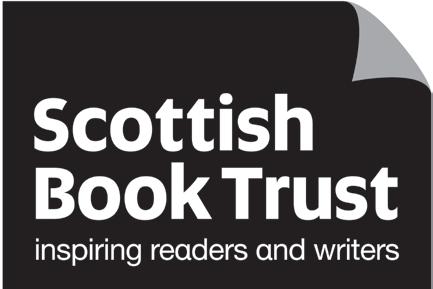


























































Reading Schools offers three accreditation levels designed to champion your efforts and support you as you build and sustain a reading culture.
























































Connect with hundreds of schools across Scotland who have already seen transformational changes to their settings, staff and pupils. Each school that submits an action plan will receive a welcome pack filled with practical tools and inspiration to guide you on your journey.

‘The impact of the Reading
process is palpable! I have been so so proud of our learners.’
– Principal Teacher, South Lanarkshire








